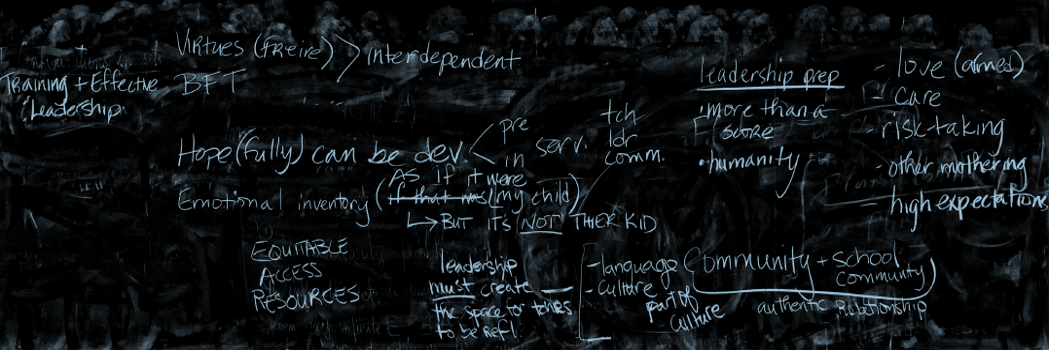This week’s readings provided an opportunity to learn about the work of Brazilian educator Paulo Freire from several perspectives—including Freire himself, a colleague who studied and interacted directly with Freire (Antonia Darder), and several scholars who applied Freire’s teachings to the practice of urban school leadership (Peter Miller, Tanya Brown, Rodney Hopson, and Rosa Rivera-McCutchen).
Freire shows great respect and high expectations for teachers in his letters “to those who dare to teach,” communicating his empathy for the difficulty of their under-valued labors while also providing encouragement and advice. He speaks clearly about the characteristics needed by educators engaged in the struggle that is public education: “humility, lovingness, courage, tolerance, competence, patience-impatience, and verbal parsimony” (p. 212). I found his frequent use of the literary device oxymorons (for example, in “uncertain certainty” and “insecure security”) somewhat distracting; at least for me, these phrases called attention to themselves served to undercut the power of his overall message about the urgency of educators addressing oppression in all its forms and about the centrality of love in the enterprise (“without which their work would lose its meaning”).
Darder’s personal reflections about her work and friendship with Freire over many years add important detail to his interaction with and influence on scholars of U.S. education, including herself. Her description of their disagreements about the importance of racism “as the major culprit of our oppression” (p. 501) is timely and compelling. Darder takes particular note of Freire’s concept of armed love, observing that “If there was anything that Freire consistently sought to defend, it was the freshness, spontaneity, and presence embodied in what he called an ‘armed love’—the fighting love of those convinced of the right and the duty to fight, to denounce, and to announce” (p. 497). Rivera-McCutchen demonstrates the contemporary salience of this concept by applying it to an analysis of two educational leaders in New York City—Jamaal Bowman and Jill Bloomberg—who actively resisted oppressive policies that stood “in the way of access to high-quality educational experiences and opportunities” (p. 238) for Black and Brown students in the Bronx and Brooklyn.



